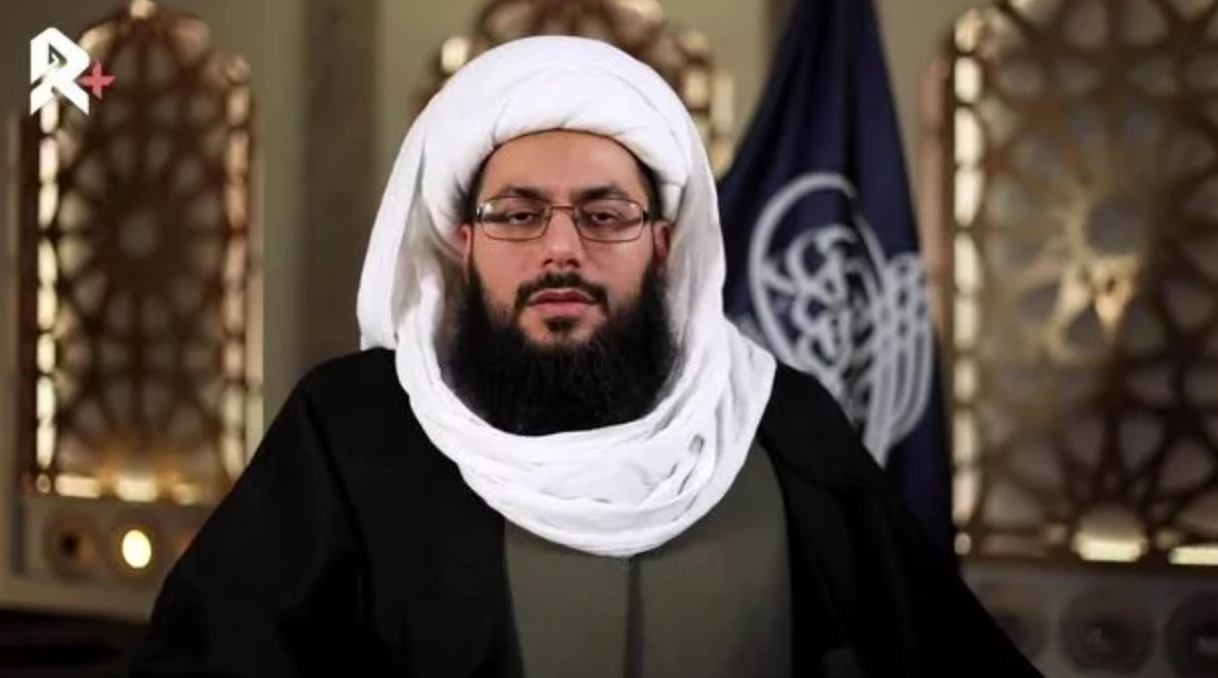Scots have been left perturbed by news that a radical Islamist preacher is fundraising to buy the remote Scottish island of Torsa. His aim: to create a global Islamic “homeland” there. Sheikh Yasser al-Habib, originally from Kuwait, claimed asylum in the UK 20 years ago after being jailed in his home country for inciting sectarianism. He now conducts “military-style” training camps, and broadcasts Arabic-language Islamist extremism on “Fadak TV” from a private compound in Fulmer in Buckinghamshire.
Now al-Habib is calling on his followers to donate toward a £3.5 million target to buy the low-lying 270-acre island of Torsa, around 20 miles off the coast of Oban and currently on the market for £1.5 million. Uninhabited at present, Torsa is mostly covered by pasture and is only accessible by private boat, while its only building is a three-bedroom farmhouse currently used as a holiday let. Al-Habib wants to build a hospital, military training centre and religious school there, and create a “homeland” for Islamists from all over the world.
This has some hallmarks of a “silly season” story. The jarring prospect of an anti-Western sect seeking a foothold in Scotland’s Western Isles makes unbeatable outrage clickbait, further enriched by the Four Lions-style comic prospect of weekend jihadis playing toy soldiers amid a cloud of that coastline’s infamous midges. That’s not to mention an unforgiving climate of 16-hour winter nights and summers that barely crack 20 degrees even at their hottest.
And that’s if they manage to get anything built, between local opposition and their own human capital. The bulk of Al-Habib’s 400,000 followers are British Muslims, a demographic that, according to ONS data, is the most likely minority in the UK to rent their home, to be on benefits, and to live in social housing — that is, to be reliant on state welfare. None of these statistics suggest a group brimful of the self-starting pioneer mindset or practical competencies required to succeed at a project of this nature.
In any case, having stirred up the headlines, the Daily Mail has since reported that the island’s current owner is unlikely to sell to anyone who is “a bad fit with the local community”. That probably rules out a fanatical Islamist with a would-be private army. Even so, we might reasonably wonder why all the outrage at this point, given how easy it already is to buy chunks of Scotland as a non-resident, an offshore company, or even a foreign state.
Scotland has long suffered from “absentee landlords” with little local interest or engagement, and today many of these now have few ties to the nation at all. The biggest landowner is Anders Povslen, a Danish billionaire, with some 220,000 acres of the Scottish Highlands. Dubai’s ruler, Sheikh Mohammed Bin Rashid Al-Maktoum, owns a further 63,000 acres. Almost half of recent Highland estate sales went to absentee owners, often for carbon offsetting; some are financial vehicles or offshore entities. Even the Chinese government owns Scottish land. Selling a mere 270 acres to some Islamists is small beer by comparison.
So why not do it? The Scottish islands have long been a home for religious sects. Holy Isle, off Lamlash Bay in Arran, is inhabited by Buddhist monks; Papa Stronsay houses the Sons of the Holy Redeemer. An Islamist island “Mahdi” would arguably be in good company. So it is perhaps a shame that this plan is unlikely to come off.
For — unlike his country of origin, Kuwait, which revoked his passport in 2010 — our supine Home Office seems chronically unable to expel even someone so obviously hostile to UK majority views as al-Habib. This is despite regular Ofcom warnings to Fadak TV, and calls by MPs for him to be censured.
With that in mind, containment on a remote, midge-infested island is surely the most practical solution all round. We should all join al-Habib’s crowdfunder, ensure he moves to Torsa with his followers — then jam the signal for “Fadak TV” and prevent him leaving again.











Join the discussion
Join like minded readers that support our journalism by becoming a paid subscriber
To join the discussion in the comments, become a paid subscriber.
Join like minded readers that support our journalism, read unlimited articles and enjoy other subscriber-only benefits.
Subscribe